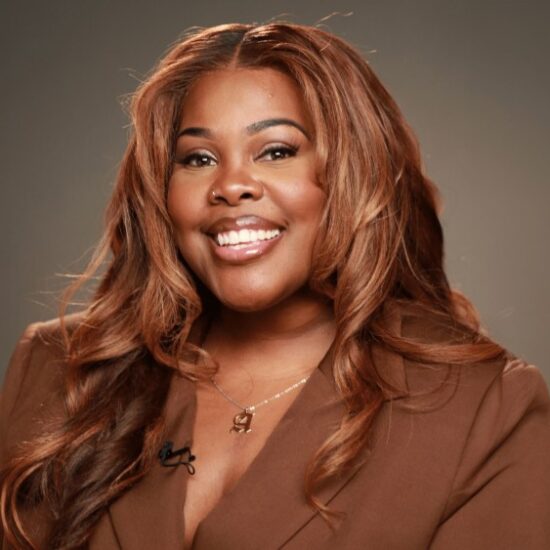
Beyoncé’s new album, “Renaissance,” is consciously steeped in dance-music history, cannily embracing decades of samples and sounds: the 1970s disco of Donna Summer and Chic, Jamaican dancehall, internet-speed hyperpop. She chose collaborators, references and even specific keyboard sounds that pay homage to club-land memories while making her own 21st-century statement. Here are some of the sources she celebrates, and an exploration of their significance.
The album’s second and third tracks, “Cozy” and “Alien Superstar,” feature writing and production by the Chicago-born house-music D.J. and producer Honey Dijon. “Cozy” also includes a writing credit for Curtis Alan Jones, known as Cajmere or Green Velvet — one of Chicago house music’s greatest producers.
That locale is key here. Chicago is house music’s birthplace, and Chicago house, in particular, often moves with a heavily pronounced swing, accentuated by octave-jumping staccato bass patterns. The canonical example is Adonis’s “No Way Back,” from 1986, and the bass line of “Cozy” plays like an inversion of it. The song is almost mnemonically recognizable as early Chicago house without simply sounding like homage.
On “Alien Superstar,” the cadence of the hook (“I’m too classy for this world/Forever I’m that girl”) is credited to an interpolation of Right Said Fred’s dance-floor novelty smash “I’m Too Sexy.” Taylor Swift borrowed the same part (also with credit) on her 2017 track “Look What You Made Me Do,” and Drake sampled the 1992 song on “Way Too Sexy” from 2021.
There’s another direct callback on “Cuff It”: The bass line is instantly recognizable as the progeny of Bernard Edwards’s monster riff from Chic’s “Good Times,” a No. 1 hit in 1979, and Edwards’s partner in Chic, Nile Rodgers, gets credit for writing and playing guitars here. (On bass and drums: Raphael Saadiq.) As Ken Barnes pointed out in his liner notes to “The Disco Years Vol. 4: Lost in Music,” a compilation on Rhino Records, rewriting Chic became a kind of national pastime during the early 1980s, not least via early hip-hop and post-disco R&B. This version of the one, two, three (rest) is as indebted to the many “Good Times” rewrites as the original: the Sugarhill Gang’s “Rapper’s Delight” and Vaughn Mason’s “Bounce, Rock, Skate, Roll,” for example.
“Energy” features writing and production from Skrillex, an EDM-festival superstar through the early 2010s known for his drops — dramatic buildups that resolve into a fresh beat — but since his heyday, he’s largely worked behind the scenes. (See Justin Bieber’s 2015 smash “Where Are Ü Now,” which he made alongside Diplo.) “Energy” seems to operate on wires; it’s taut minimalism, with the supplest layering of sub-bass tones.
The song also has writing credits for Pharrell Williams and Chad Hugo, the songwriting and production duo the Neptunes, known for their work with a wide swath of singers and rappers starting in the 1990s. On Thursday, before the release of “Renaissance,” the singer and songwriter Kelis spoke out on social media, saying those credits were for a sample of one of her songs (it turned out to be an interpolation of “Milkshake,” from 2003), and that she hadn’t given permission for its use. Kelis wasn’t a credited writer or producer on most of the early albums she made with the Neptunes, and didn’t have credits on “Milkshake.” In a 2020 interview with The Guardian she said she had signed an agreement with the duo when she “was too young and too stupid to double-check it.”
A similar situation arose with the album’s lead single, “Break My Soul,” which is indebted to the central Korg motif from Robin S.’s pop-house hit “Show Me Love.” But whether her 1992 remix was sampled was initially unclear, and for the first week of the song’s release, the credits shifted. (The latest version says the Beyoncé song “contains elements” of “Show Me Love.”) The Robin S. song’s afterlife has been robust: Its riff showed up in the Brooklyn producer AceMo’s 2019 “Where They At???” featuring John FM, which became a key underground dance anthem before and during the pandemic, as well as in recent releases from Charli XCX and Daddy Yankee.
Another key to “Break My Soul” is the shouting of exhortations (“Release your wiggle!”) by the New Orleans bounce artist Big Freedia, whom Beyoncé had earlier sampled on “Formation” (2016). Bounce is a New Orleans-bred dance-music style that’s dizzyingly fast, bass intensive and heavy on call and response; twerking emerged in response to it.
Beyoncé glances back to the late ’90s again on “Plastic Off the Sofa.” While the bulk of the song is lush digital balladry, there’s a moment in its coda that could have come from “glitch” experimental-electronica, where the tail end of a vocal run, heavily overdubbed, is subjected to a deliberately audible edit. It’s a hair jarring but mostly humorous — an audible wink to the listener, one facet of modern pop’s high-tech production laid bare. (For an example from the ’90s, see Oval’s album “94diskont,” or the compilation “Clicks + Cuts,” released in 2000.)
Classic disco asserts itself at the album’s midway point. “Virgo’s Groove” features layers of undulating percussion, synthesizer and bass that updates the production work Quincy Jones did with Michael Jackson — a sort of companion piece to Daft Punk’s “Get Lucky.” “Move,” the next track, includes a feature from Grace Jones — disco royalty, just in case anyone wondered where Beyoncé may be coming from.
Just as notable on “Move” — and even more noticeably on “America Has a Problem” — is the swarming low end known in the dance world as the “Reese bass.” The term is a reference to a 1988 record, “Just Want Another Chance” by Reese, one of many aliases used by Kevin Saunderson, one of the first producers identified with Detroit techno in the mid-80s.
In much the same way that “Chicago house” refers not only to a style and its birthplace but also that swinging octave-hopping sound, “Detroit techno” tends to denote attention to detail and an aura of restless invention. The heavy-fog low end of “Just Want Another Chance” was often repurposed by London bass-music styles like jungle, drum & bass, U.K. garage and dubstep — what the writer Simon Reynolds has called the “hardcore continuum” of Black British musical styles from urban areas that took root on London pirate radio.
Beyoncé’s use of the heavy, undulant Reese bass on “Move” and “America Has a Problem” further locates the album in the Black dance-music continuum. “Problem” also opens with orchestral stabs, à la Afrika Bambaataa & the Soulsonic Force’s landmark electronic-rap track “Planet Rock” — or, even more aptly given the title and lyrical theme, Janet Jackson’s “Rhythm Nation.”
“Heated” features Beyoncé in commanding neo-dancehall form over a slinky, wood-block-heavy groove. At the end of the song, she mentions tapping out tracks with her fingers on the MPC, an instrument designed by Roger Linn that arrived in 1988. The MPC, made by Akai, isn’t played with a keyboard, but instead features a square grid of pads that trigger different sounds, and it has become a widespread compositional and performance tool.
“Thique” sounds like something that would have been all over dubstep dance floors in the days before Skrillex, when the subgenre’s distended bass and variable tempos were primarily the province of British producers. Sure enough, the song’s writing and production credits include an artist influenced by those musicians: Chauncey Hollis Jr., a.k.a. Hit-Boy, who produced a dubstep-inflected hit on Jay-Z and Kanye West’s “Watch the Throne” (2011).
The Plasticine sounds of “Thique” segue into the even more heavily synthetic “All Up in Your Mind,” co-produced by A.G. Cook, the main mind behind the London label and art collective PC Music, which arrived in the mid-2010s with a sound built on stylish exaggeration: tones that weren’t just high in a machine-music way, but deliberately squeaky. (Sophie, the producer known for exhilarating hyperpop who died in 2021, came from this camp.) “All Up” is futurist robo-pop, with a sub-bass line that seems to be snorkeling under the speakers rather than emanating from them.
“Pure/Honey,” next to last, is another sub-bass monster: The first part, propelled by a nasty kick drum, is a surprising approximation of techno at its steeliest, or maybe its most “pure.” The “honey” comes at the 2:11 mark, a bulbous neo-disco groove with feathery horns that recalls early Sylvester. The track runs in part off a sample of a Kevin Aviance song subtitled “The Feeling” — one of the key recordings in a queer house sub-style known as “bitch tracks.”
The album’s final track, “Summer Renaissance,” features Beyoncé singing, “It’s so good, it’s so good, it’s so good, it’s sooooo good” over a very familiar pinballing riff — yes, the finale interpolates Donna Summer’s “I Feel Love,” the 1977 disco hit with an all-synthesizer backdrop and pulsating rhythm that anticipated the future sound of dance music. But the main melodic phrase from “I Feel Love” sounds like it’s being played on the Korg keyboard that anchors “Break My Soul,” subtly tying two eras together in a third one.













